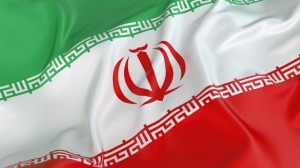 The Obama administration has made a useful modification to its Iran policy by lifting sanctions on companies that want to sell cellphones, laptops, encryption software and other similar technology to ordinary Iranians. This should improve the ability of Iranians to circumvent their government�s unrelenting crackdown on dissenting opinion and communicate with each other and the outside world without reprisal.
The Obama administration has made a useful modification to its Iran policy by lifting sanctions on companies that want to sell cellphones, laptops, encryption software and other similar technology to ordinary Iranians. This should improve the ability of Iranians to circumvent their government�s unrelenting crackdown on dissenting opinion and communicate with each other and the outside world without reprisal.The decision, announced by the State and Treasury Departments�on Thursday, is a departure from the administration�s general approach, which over four years has been to increase sanctions in an effort to persuade Iran to abandon its nuclear program.
The Obama administration has definitely not repudiated that approach. Along with the technology decision, it also announced sanctions on an Iranian company, a government agency and nearly 60 individuals accused of human rights abuses related to political repression.�On Friday, for the first time, eight Iranian petrochemical companies were sanctioned; penalties were also levied against a company based in Cyprus and Ukraine that is accused of trying to evade Iran-related sanctions.
More sanctions are likely. But the decision to permit the export of personal communications technology suggests a welcome willingness on Washington�s part to reduce the burden of the sanctions on ordinary Iranians. The directive specifically bans government or commercial sales.
So far, the sanctions have failed to force Iran to make a deal on its nuclear program, which is advancing steadily toward a bomb-making capability. But the sanctions have badly damaged the country�s economy, and ordinary Iranians, not just the government, are paying a price.
The technology decision, which comes two weeks before�Iran�s presidential election, inserts the United States into Iranian politics on the side of political freedom in a way the Obama administration did not during the last election in 2009. That election was denounced as fraudulent by the Iranian opposition, which, using various social networking services and Web sites, staged months of protests that, in turn, triggered a vicious government crackdown.
Just what impact the technology decision might have on the presidential election on June 14 is unclear. Most opposition leaders remain under house arrest, imprisoned or otherwise silenced; only eight candidates, handpicked by the state�s Guardian Council, have been allowed to run for president.
There could be delays in exporting hardware, but software updates and access to instant messaging and other online programs could be made available quickly.
This should have been done sooner. Tensions beween Iran and the United States � over Syria and terrorism, as well as the nuclear program � will almost certainly get worse, barring some unexpected new policies in Tehran. But America will be in a stronger position if it is seen as standing with the Iranian people.
By The New York Times
The Iran Project is not responsible for the content of quoted articles.










